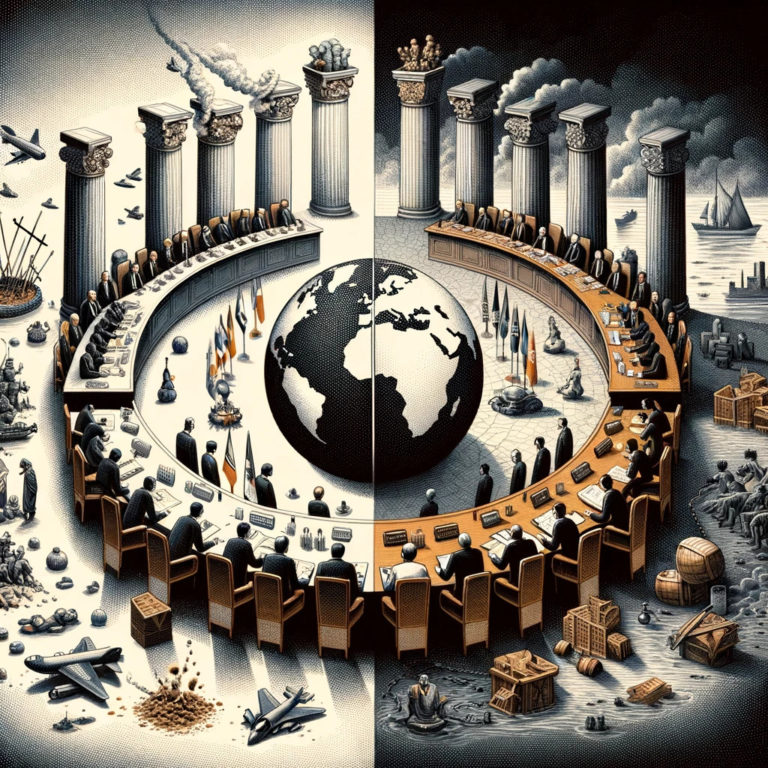Letter from La Vigie, dated 18 September 2024

Global turmoil
After an overview of the summer’s turbulent international scene (despite the Olympic truce), the conclusion is clear: the world is facing global turmoil, which reflects both the disarray of Westerners who see their domination crumbling and the blurred situation from which no clear perspective has yet emerged.
To read the article, click here
Dividing up the world
The world was first divided in 1494 with the Treaty of Tordesillas. Since then, globalization has taken place one after the other, mainly by sea, as the planet has been slowly reorganized. The Portuguese example is still alive today: let’s emulate the ten qualities that enabled it to develop a clear strategic intent.
To read the article, click here
Lorgnette : Trouble at the commission
The recent European elections provided an opportunity to renew the Commission. Bargaining was going well. But whereas they are usually discreet, this time they are making a lot of noise. Already in the first half of the year, many people were speaking out against the reappointment of Ursula von Der Leyen. They criticized her for often interfering in matters that were none of her business, and for living in an ivory tower without giving anything away or even listening to dissenting voices. Unfortunately, coming from the EPP, the conservative political group that had maintained its positions in the European Parliament, and being German with a weakened France, she was chosen. The final negotiation remained: the Commissioners.
She refused to reappoint Thierry Breton. Admittedly, the Frenchman was able to provoke, but relations were at their worst: an eternal dispute between the German and French characters. The Élysée immediately appointed Stéphane Séjourné, the very unconvincing Minister of Foreign Affairs, apparently in exchange for a higher post.
The incident may seem insignificant, but it is indicative of France’s loss of influence: as well as being an inconvenient character, it is also indicative of a real weakening. This is all the more worrying at a time when Europe seems disarmed in the face of the world.
JOVPN
Subscribers: click directly on the links to read online or download the pdf issue (here), always with your login/password. New readers: read the article by issue, by clicking on each article (€2.5), or subscribe (discovery subscription €17, annual subscription €70, orga. subscription €300 excl. tax): here, the different options.
Photo credit: Just call me Jac on Visualhunt

